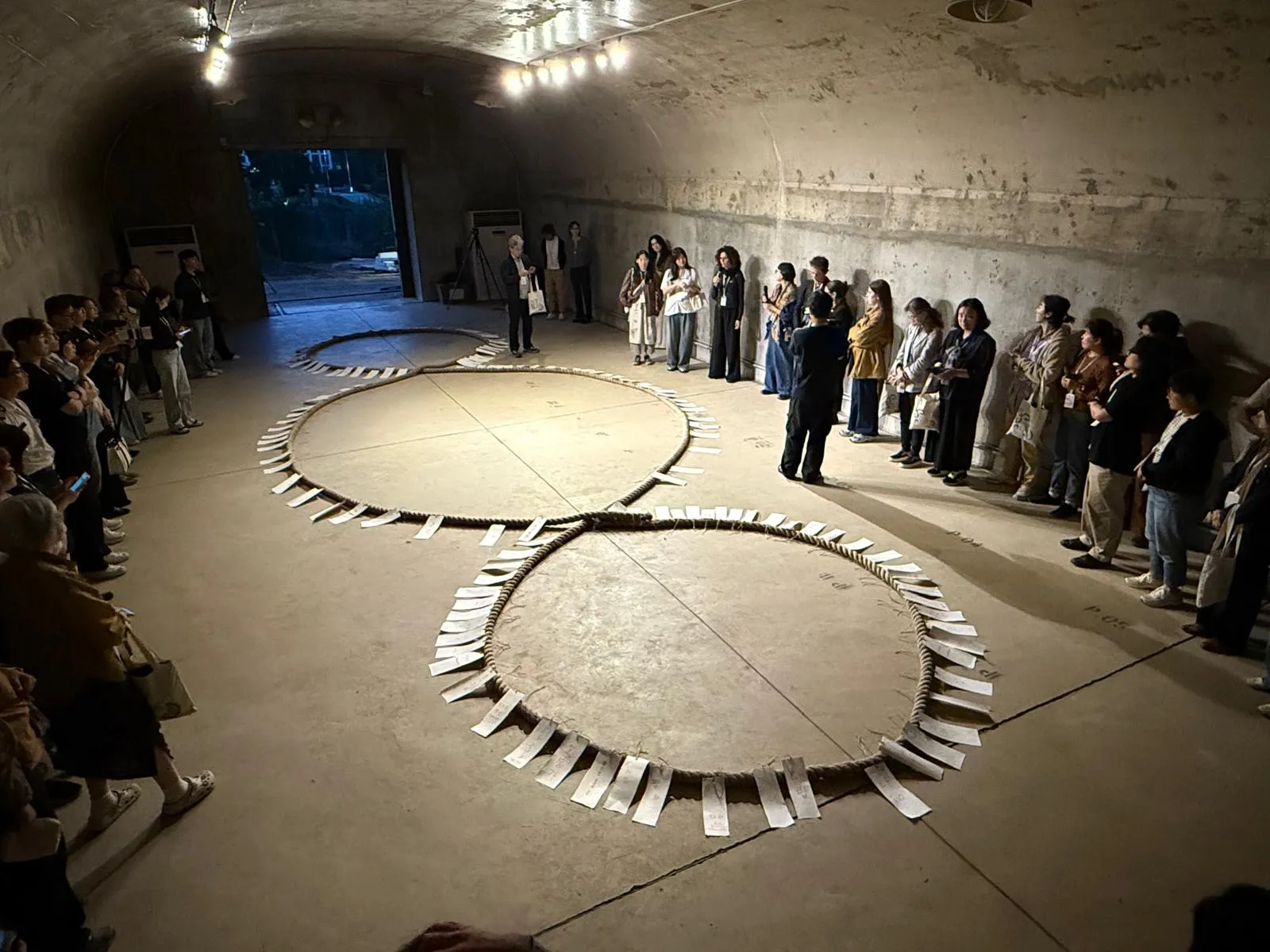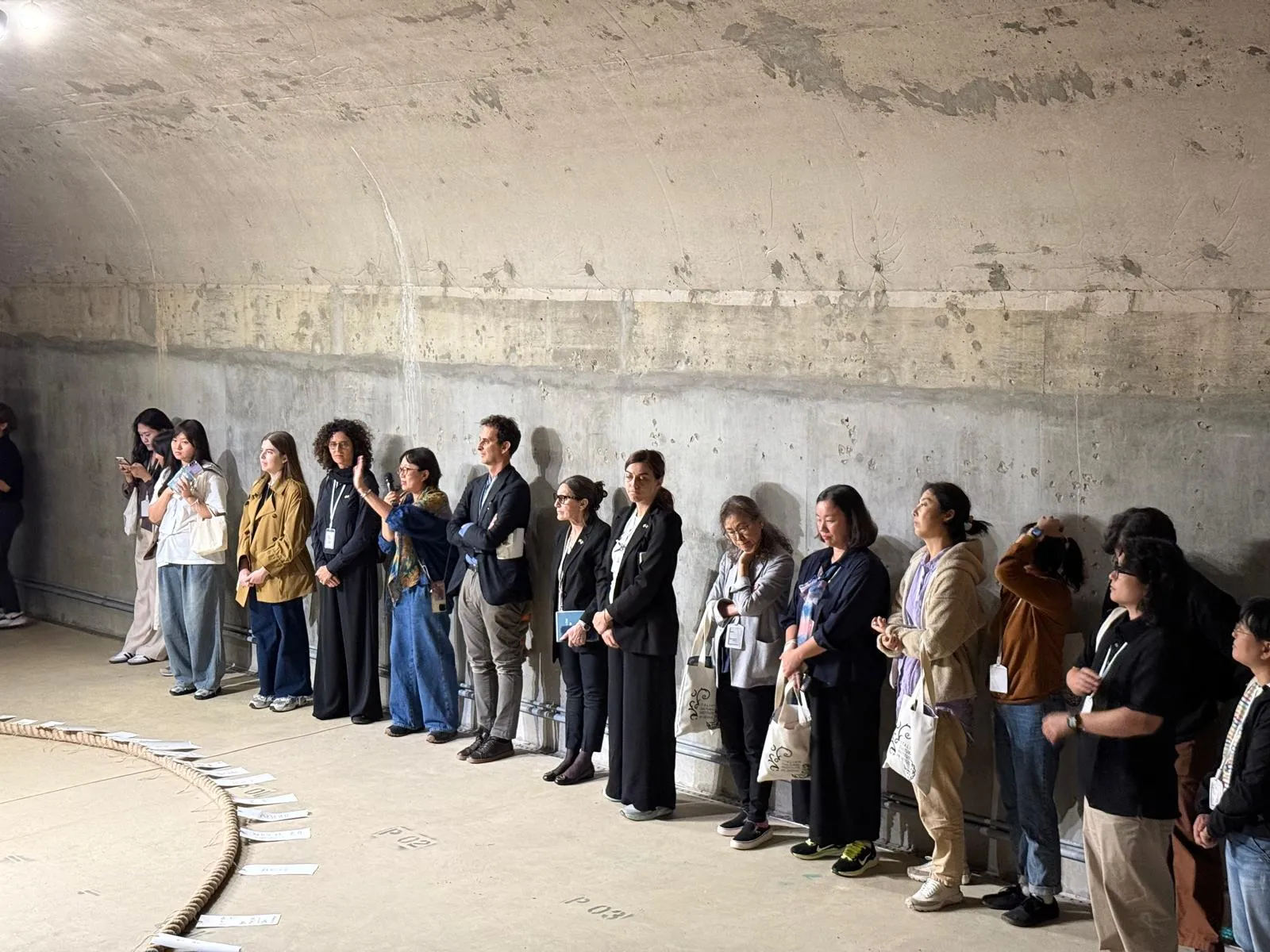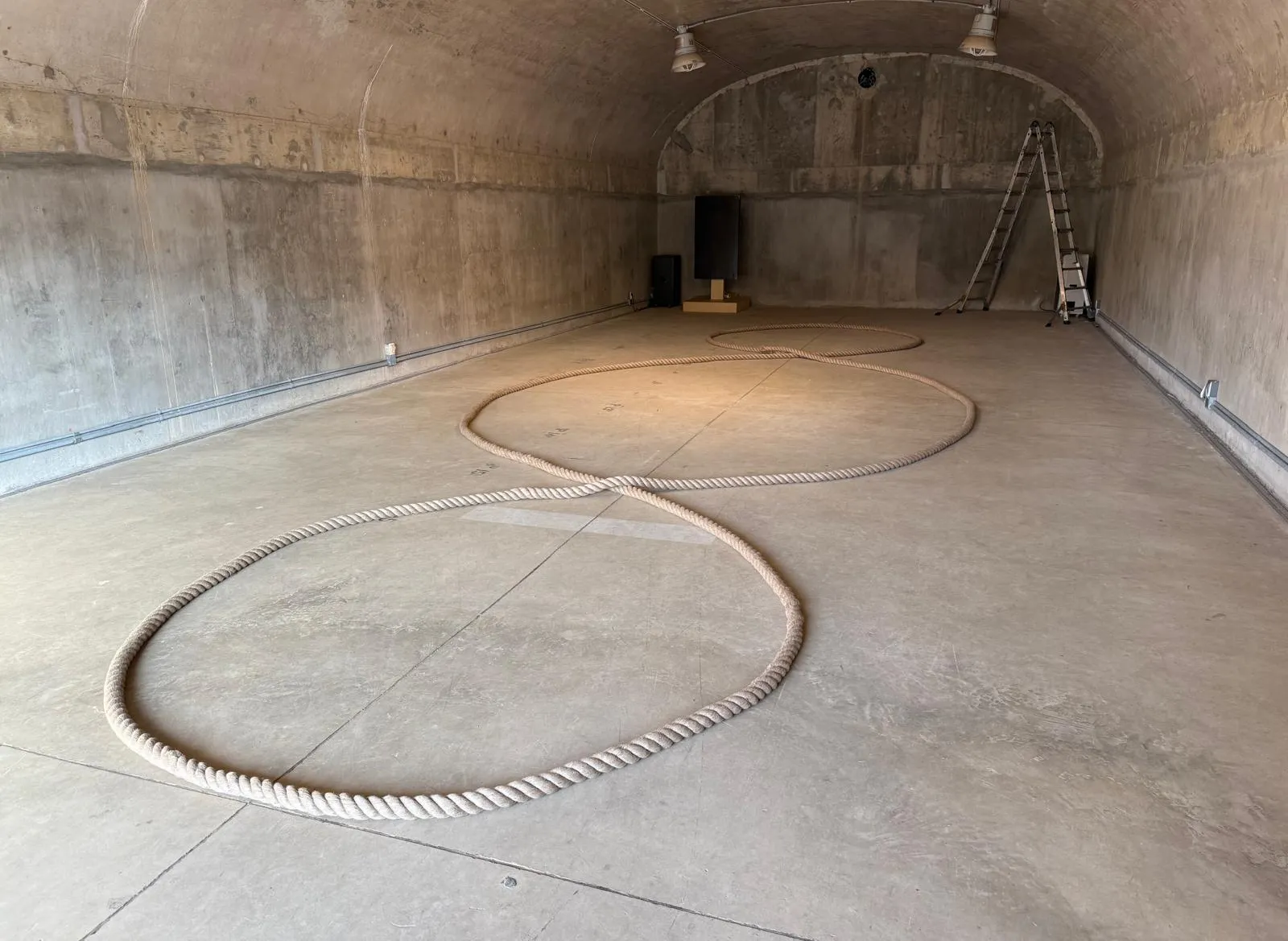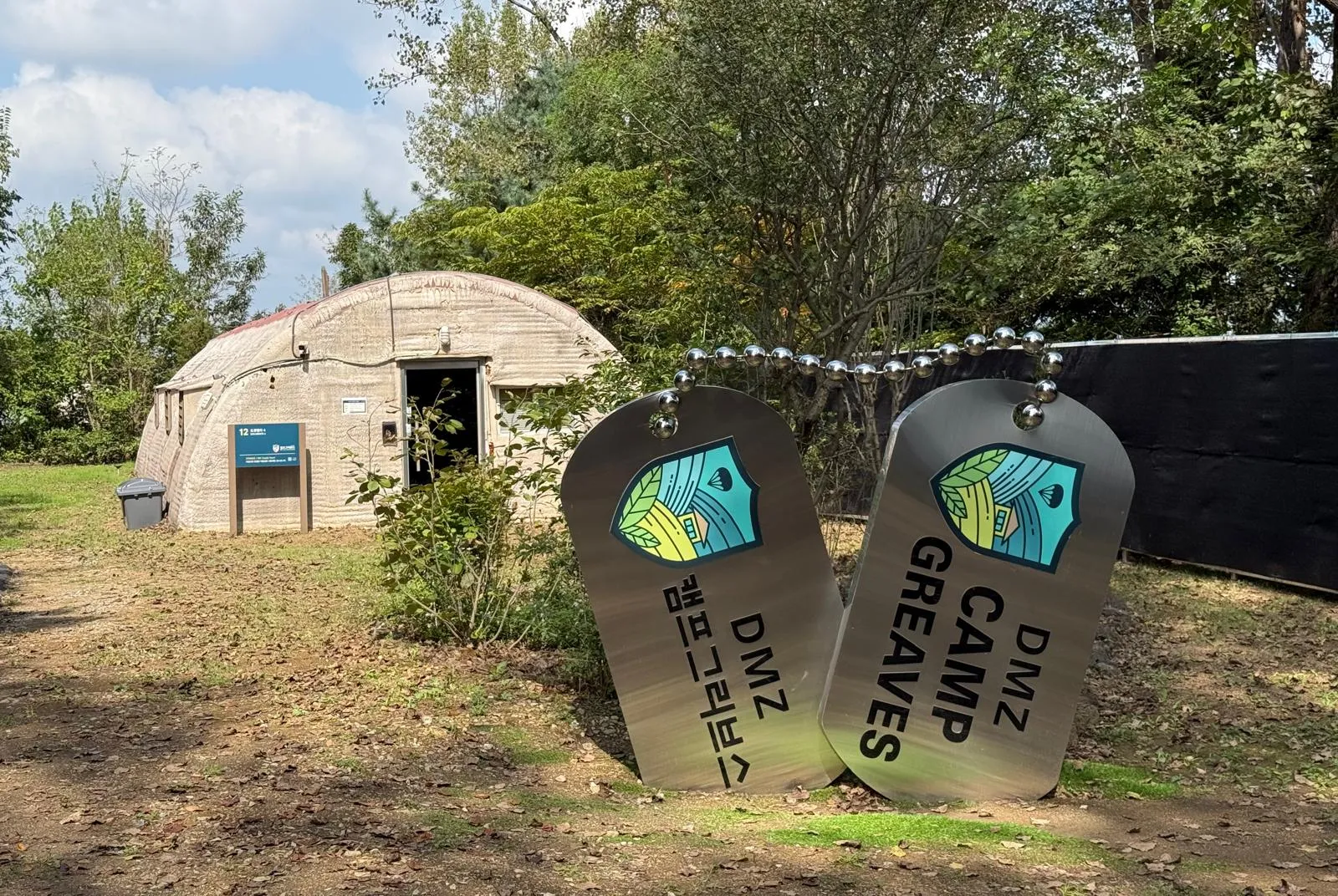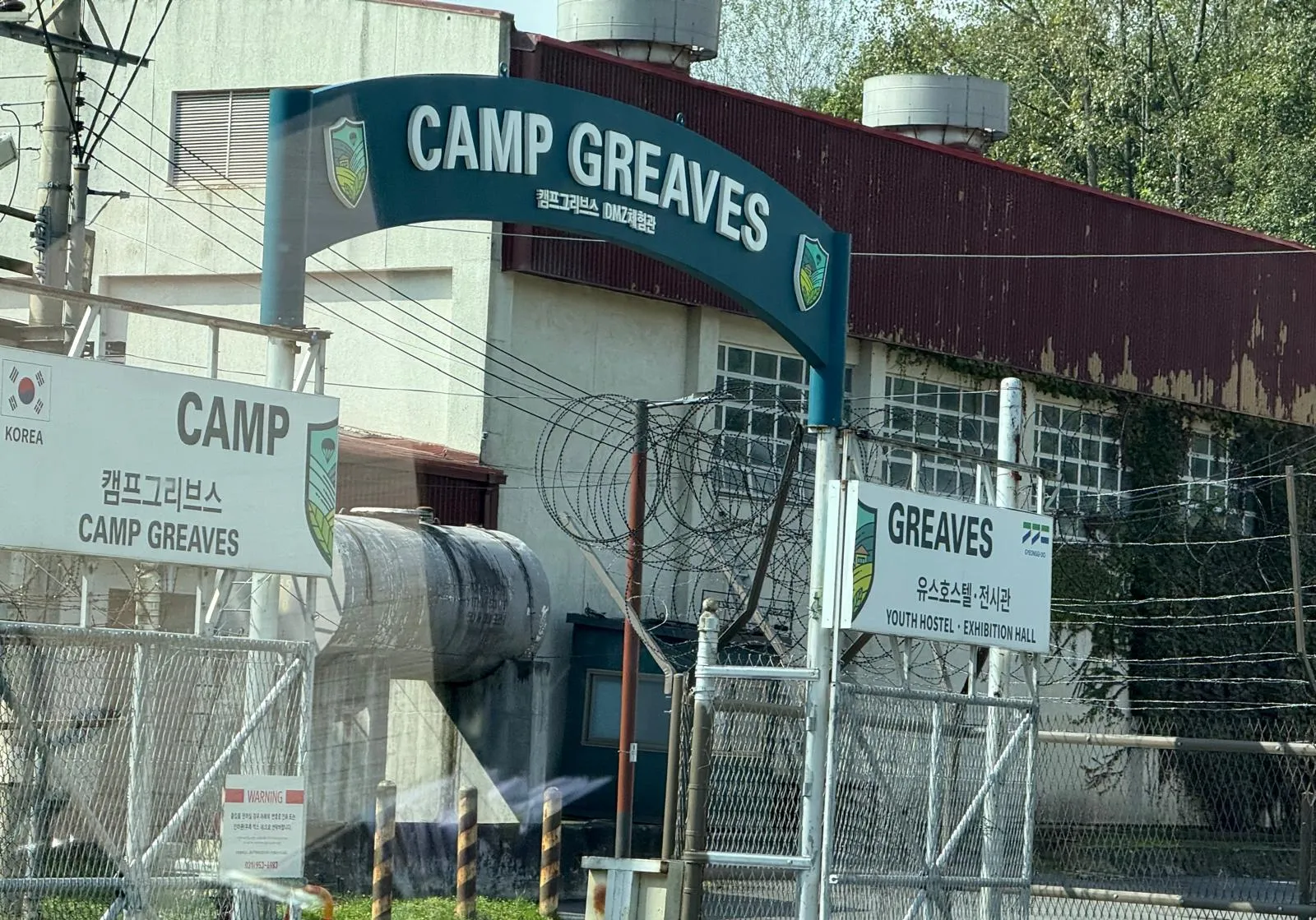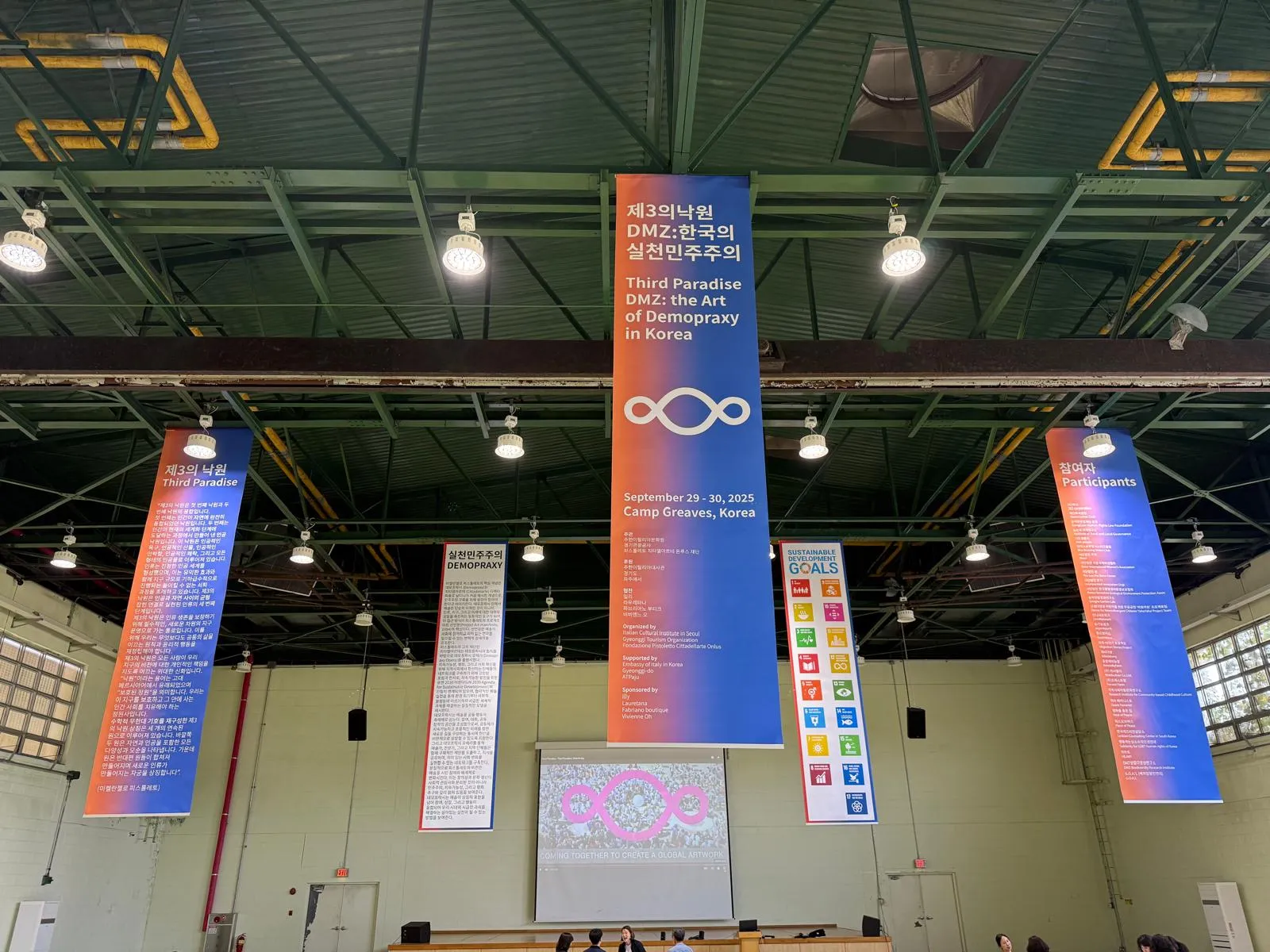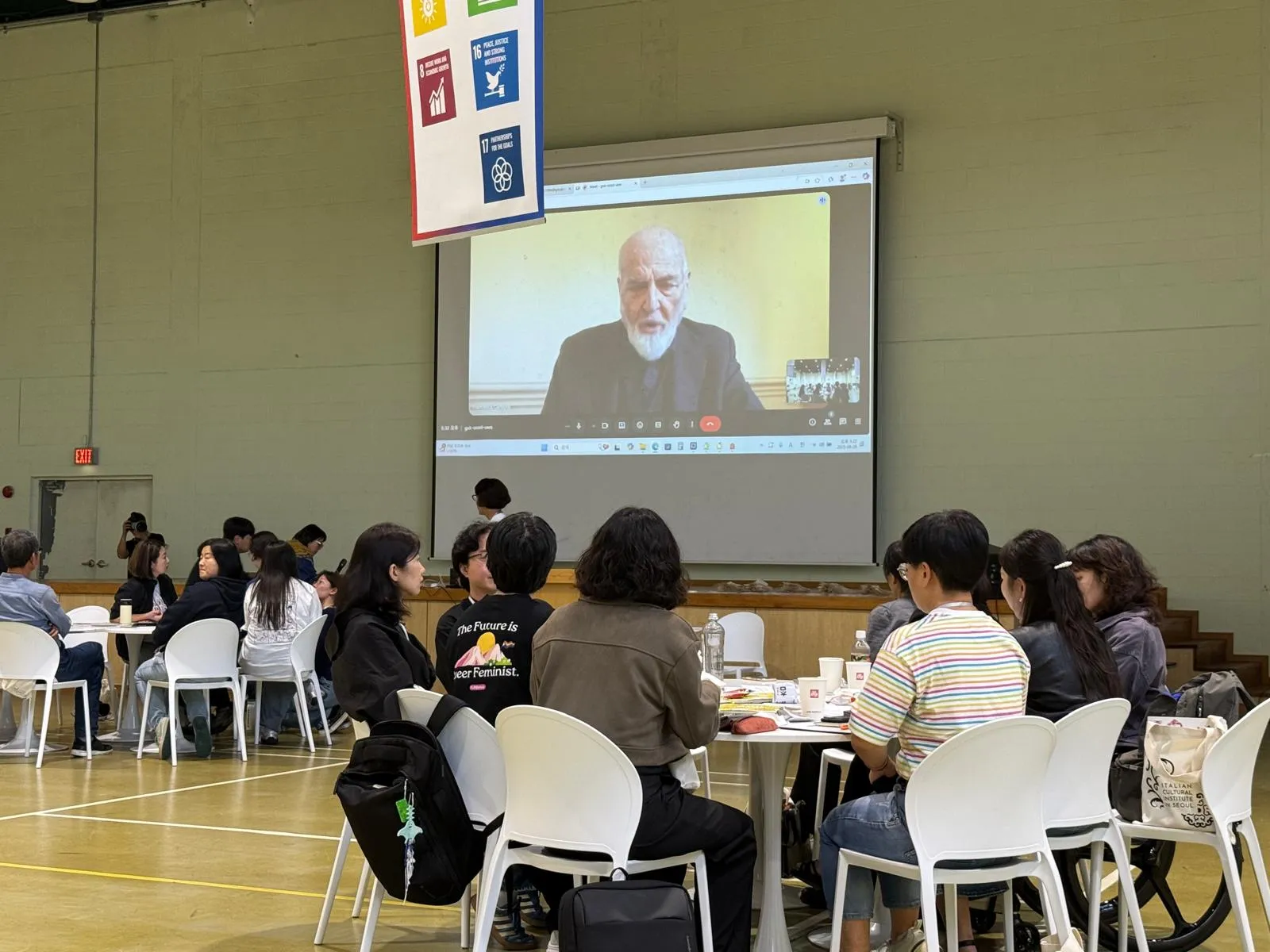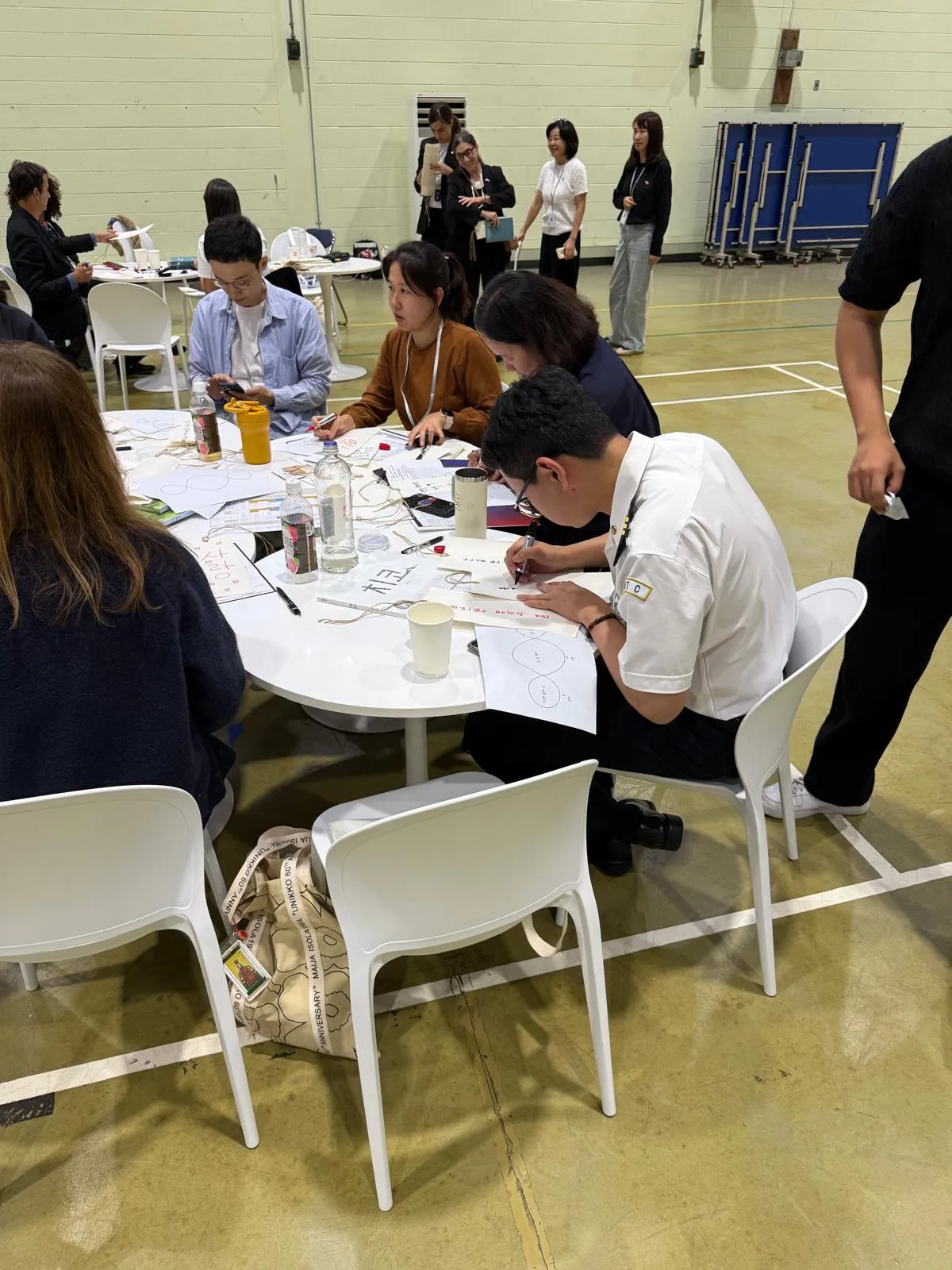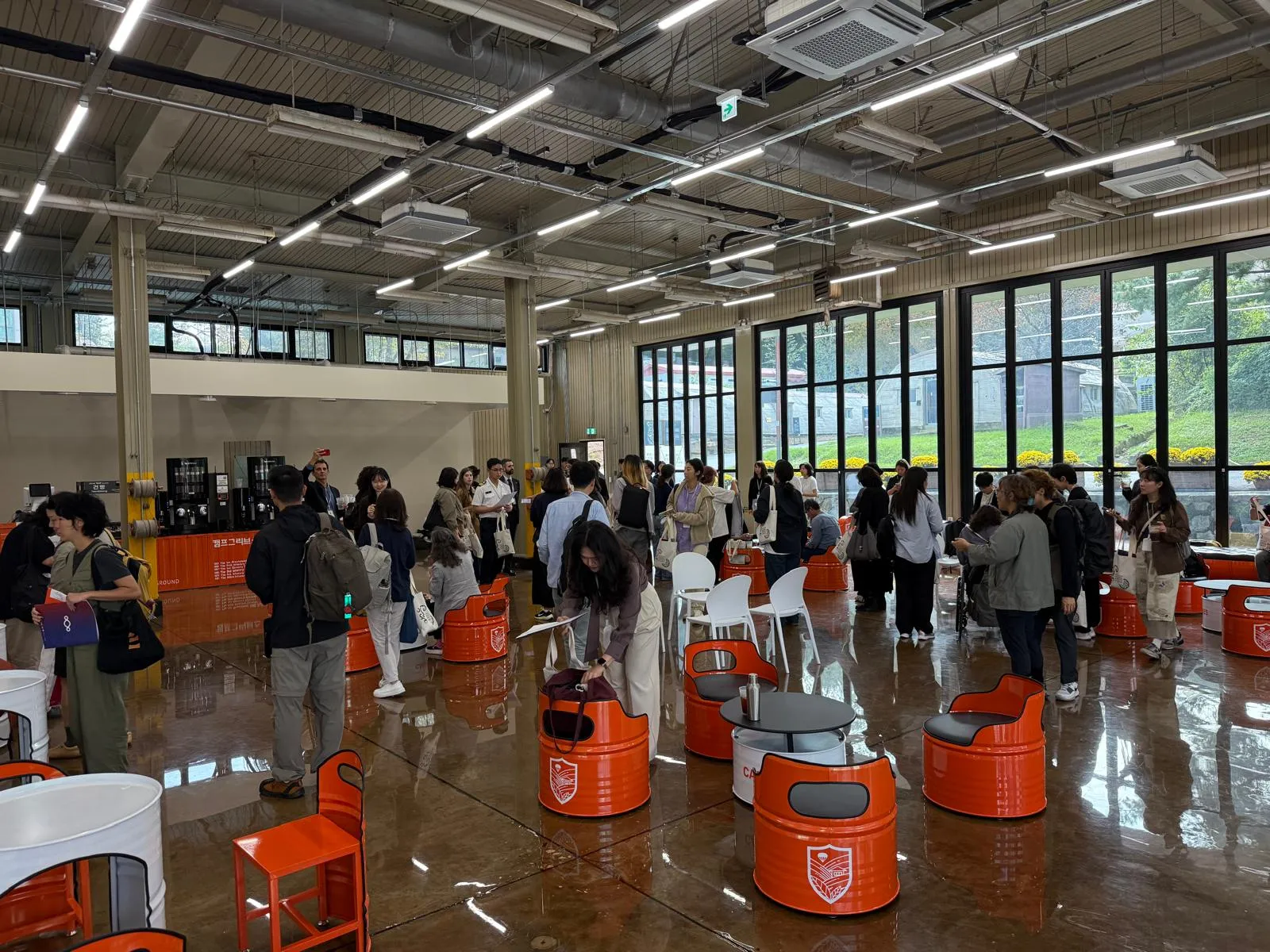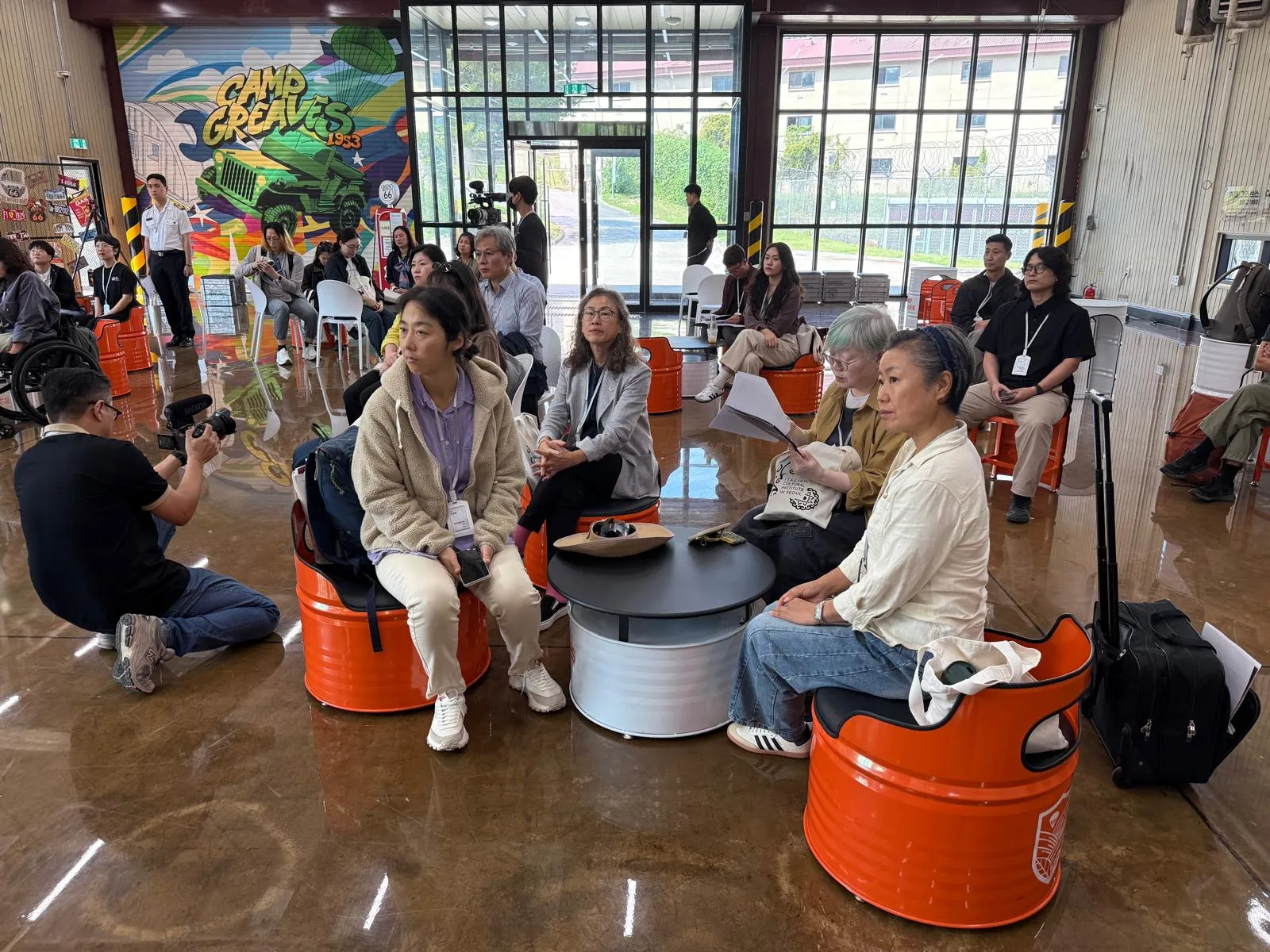What can we
help you find?
Ricerche suggerite
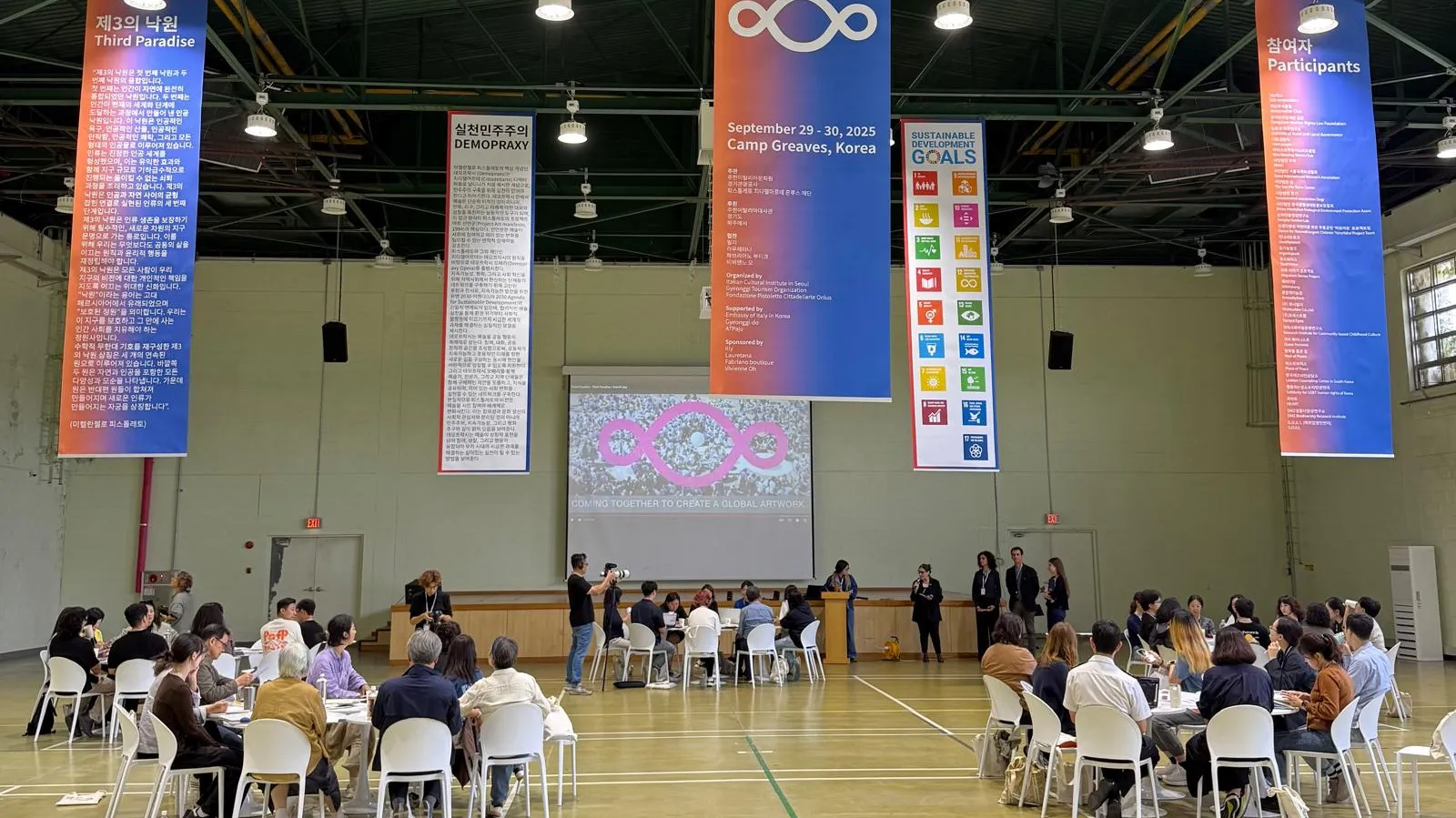
Demopraxy from Biella to Seoul with "Third Paradise DMZ"
On September 29–30, 2025, the first Forum "Third Paradise DMZ: The Art of Demopraxy in Korea" took place at Camp Greaves, near the demilitarized zone between North and South Korea, promoted by the Italian Cultural Institute in Seoul together with Fondazione Pistoletto Cittadellarte and the Gyeonggi Tourism Organisation. Curated by Valentina Buzzi and Soik Jung, the event brought together 31 civic organizations and 45 professionals around the themes of inclusion, ecology, and preventive peace, leading to the drafting of a Forum Charter and the development of new cooperative initiatives. The program also featured the participatory performance "Third Paradise DMZ – Memories to Rebuild the Future", on view until November 2, 2025.
Seoul, September 29–30, 2025 – The Italian Cultural Institute in Seoul, under the auspices of the Embassy of Italy in Seoul and the Ministry of Foreign Affairs and International Cooperation, together with the Pistoletto Cittadellarte Foundation and the Gyeonggi Tourism Organisation, presented the first edition of the Third Paradise DMZ Forum: The Art of Demopraxy in Korea, an event dedicated to the Art of Demopraxy of artist Michelangelo Pistoletto, nominee for the 2025 Nobel Peace Prize. The collaboration between the Italian Cultural Institute and Cittadellarte also led to the establishment of a scholarship for the 2026/2027 academic year at the UNIDEE Academy of Cittadellarte in Biella, open to a student from Korea, in the field of Public Art or Sustainable Fashion. The event took place at Camp Greaves in Paju, a former U.S. military base transformed into an educational and cultural site by the Gyeonggi Tourism Organisation, located near the Demilitarised Zone (DMZ) at the border between South and North Korea. Curated by Valentina Buzzi and Soik Jung, the project brought together 31 Korean civic organisations aligned with the United Nations 2030 Sustainable Development Goals, following the format of the Demopraxy Opera, whose workshops are currently active in 12 cities worldwide: from Havana to Rome, Biella to Geneva, Nova Gorica-Gorizia to L’Aquila, Ivrea, Busto Arsizio, Brno, Scanno, and now Seoul.
The two-day Forum programme focused on Inclusion and Ecology through five key themes: Solitude, Borders, Care, Resilience, and Praxis—the latter referring to concrete strategies for achieving the other four goals. Together, these themes converged into the idea of Diversity and ultimately toward a broader vision of Peace. The Forum brought together 45 professionals from civil society, social enterprises, research, grassroots activism, and the DMZ community.
Working in five thematic groups—called “cantieri”—participants exchanged ideas and experiences from their respective practices. These sessions offered participants from diverse backgrounds and fields the opportunity to meet, share perspectives, and learn from one another. This cross-pollination enriched the discussions, fostering new ideas and paving the way for transversal collaborations. At the conclusion of the Forum, participants resolved to create a shared communication channel to continue and deepen the exchange. They also drafted a Forum Charter—a collective declaration reflecting their shared voices and concrete actions. This document now serves as a “map” for ongoing commitment and collaboration, coordinated by the Italian Cultural Institute Seoul and co-curators Soik Jung and Valentina Buzzi.Among the Forum’s outcomes were announced projects connecting universities and workplaces to strengthen field-based apprenticeships; partnerships between Korean and international bio-pharmaceutical companies; and further development of Preventive Peace as a central theme, with the Art of Demopraxy as the concrete working method.
Particularly meaningful among the initiatives was a reconciliation programme between the two Koreas, carried forward by an association of artists who are defectors from North Korea and others from countries torn by tragic conflicts. The programme also featured a major participatory art performance titled Third Paradise DMZ – Memories to Rebuild the Future, conceived by the curators in collaboration with Francesco Saverio Teruzzi, coordinator of the international network of more than 300 Third Paradise Embassies. Inside the former military bunker of Camp Greaves, a 36-metre-long hemp rope was installed, forming three interconnected circles inspired by Michelangelo Pistoletto’s Third Paradise: a symbol of harmony and dynamic balance between opposites. On sheets of Hanji—traditional Korean mulberry paper—participants wrote messages envisioning ideas, concepts, and possible desired futures, which they then tied to the rope in a collective gesture. In this way, the installation transformed a place once marked by division and silence into a laboratory of coexistence, where art becomes a practice of preventive peace, weaving together memory and hope. The work will remain open to the public at Camp Greaves until November 2, 2025. Visitors are invited to add their own messages, which will be collected and later published jointly by Cittadellarte and the Italian Cultural Institute on the dedicated event website.
The Forum was also in harmony with the programme of Camp Greaves’ management and ocal authorities, who, in parallel with the event, celebrated the historic opening of the Art and Green Ground space under the title From Armistice to Peace. Paolo Naldini, Director of Cittadellarte—present at the event together with Armona Pistoletto, founding member of Cittadellarte and Director of the Nourishment Office—stated: “Demopraxy is the method through which the dream of democracy can truly be fulfilled, overcoming both collectivist totalitarian ideologies and individualistic, consumerist ones. To realise this dream, we must begin with the organisations that bring people together in communities of practice—businesses, associations, and every other form of collective structure—because each of them is already in a position to make impactful choices on people’s lives every day; in other words, they hold governance power. The Art of Demopraxy brings awareness to these organisations, provides a method for uniting and cooperating, and lays the foundation for a ‘State of the Art’, where free creation and responsible engagement are the guiding principles of a constitution that complements and supports existing national ones".
Michela Linda Magrì, Director of the Italian Cultural Institute in Seoul, declared: “The realisation of the Third Paradise in Korea by the artist Michelangelo Pistoletto confirms 2the urgent need today to speak about peace and responsibility in our actions. I hope this milestone marks the beginning of a new vision aimed at building a more equitable and compassionate society”.
The co-curators of the event added: Valentina Buzzi: “As art professionals, we often ask ourselves whether art can truly generate concrete changes in society. We don’t always have definitive answers, but bringing the Third Paradise to the DMZ has strengthened my belief that art can indeed facilitate processes of social transformation. Reflecting on complex concepts such as borders—on which Michelangelo Pistoletto has dedicated much of his research—and reinterpreting them in a broader sense has allowed us to transform the way we understand them, recognising borders not only as lines of separation but as semantic fields where the possibility arises to co-create spaces of union, peace, and responsibility toward the future”.
Soik Jung: “While preparing the Forum, meeting people who work with great dedication to help those in need and on issues that deserve our attention was truly moving. It made us realise once again that we should look at the world with the same interest and affection that these people embody. I believe this feeling, this awareness, was shared by all participants in the Forum. Moreover, the people gathered here created a point of contact with activists around the world—one of the most significant aspects of this project”.
Organizers
Italian Cultural Institute in Seoul
The Italian Cultural Institute (IIC) in Seoul is an office of the Italian Ministry of Foreign Affairs and International Cooperation. Its mission is to promote the Italian language and culture in Korea and to strengthen cultural ties between the two countries. Under the aegis of the Ministry, the Institute fosters cultural exchange between Italy and South Korea through events across multiple fields: visual arts, music, cinema, theater, dance, fashion, design, photography, architecture, gastronomy, as well as the humanities and scientific culture. Its activities include supporting exhibitions and festivals, developing academic exchange, encouraging the publication of Italian books, promoting the study of Italian, and collaborating with local institutions to organize cultural initiatives. The Institute also houses a library open to members and students, offering books, audiovisual materials, and periodicals for consultation and lending. It provides Italian language and culture courses taught by qualified instructors, with the goal of spreading Italian as a tool for dialogue and cultural access. For major concerts, exhibitions, and other cultural events, the Institute collaborates with local museums and arts institutions, foundations, EU cultural organizations, university departments of Italian studies, as well as institutions under Italy’s Ministry of Culture and Ministry of Foreign Affairs.
Fondazione Pistoletto Cittadellarte Onlus
Cittadellarte is a non-profit organization founded in 1998 in Biella (Italy) by artist Michelangelo Pistoletto, a leading figure of Arte Povera. Conceived as a new model of artistic and cultural institution, and inspired by Pistoletto’s Manifesto Progetto Arte, Cittadellarte integrates art into all sectors of society as a transformative agent based on the freedom/responsibility paradigm. Beyond exhibitions and training, its mission is to inspire and produce responsible social change through creativity and projects, translating the Third Paradise symbol into real practices of co-creation across multiple fields. Today, Cittadellarte is a living school-laboratory connected to more than 300 ambassadors in more than 50 countries, and to a wide network of institutions, NGOs, and organizations worldwide.
Gyeonggi Tourism Organization – Camp Greaves
Located just 2 km from the Southern Limit Line (SLL) of the DMZ, inside the Civilian Control Zone (CCZ), Camp Greaves is one of the oldest U.S. military bases in South Korea. Built in 1953 and used for about 50 years as the base of the 506th Regiment of the U.S. 2nd Infantry Division, it was handed back to the Korean government in 2007. In 2013, the Gyeonggi Province transformed the site into an experiential historical and cultural facility. The original buildings have been preserved as they were during the U.S. Army’s presence, making Camp Greaves the only site within the CCZ dedicated to history, culture, and art. With 10 renovated exhibition halls completed in 2016 as part of a cultural regeneration project, Camp Greaves is evolving into a peace tourism hub within the DMZ through the DMZ Peace Platform.
Curators
Valentina Buzzi (b. 1995)
Valentina Buzzi is an Italian-French curator, researcher, and consultant. Her curatorial practice explores the intersections of art and society, with a particular focus on the relationship between art, cultural policy, science, and heritage. After more than five years in Seoul, she has developed numerous exchange projects between Europe and Korea, including: the curation of the fir Italian Pavilion at the Gwangju Biennale (2023); the exhibition Lee Bae: La Maison de la Lune Brûlée at the 60th Venice Biennale (2024); the inaugural edition of Loop Lab Busan, a spin-off of the Loop Film Festival in Barcelona (2025); and the co-curation of the contemporary art program in Paris for the 140th anniversary of France–Korea diplomatic relations (2025–2026). She is currently a Curatorial Researcher at the Park Seo-Bo Foundation in Seoul and completing a PhD in Socio-Cultural Studies at Hankuk University of Foreign Studies. In 2023, she was named Best Emerging Curator by Artribune, and in 2025 was included in the Forbes 30 Under 30 – Culture list. She regularly writes for Art Asia Pacific and Plus Magazine and works as an independent editor for Skira’s Korea-related publications.
Soik Jung
Soik Jung is a curator, researcher, architect, and social worker with a Ph.D. in Urban Planning and Social Services. Her work bridges academic and cultural activities across art, architecture, urbanism, social sciences, and community-based practices, through research, exhibitions, educational programs, and publications. She recently curated Ministries of Loneliness, the Italian Pavilion at the 2024 Gwangju Biennale; and as Co-Artistic Director, 2086: Together How?, the Korean Pavilion at the 2023 Venice Biennale. Other projects include Smaller Slower Closer (2020–2021), a public art project commissioned by the Arts Council Korea, and Architecture for All, an exhibition and educational program at the Nam-Seoul Museum of Art (SeMA) (2020). Her recent publications include: LONELINESS: Rebecca Moccia’s Ministries of Loneliness and Timely Conversations (2025, Propaganda); 2086: Together How? (2023, Mousse Publishing); Smaller Slower Closer (2021, a-g-k); and 밖으로, 스스로, 표현하기 (By Yourself Outward and Express) (2019, Fedora Press).
